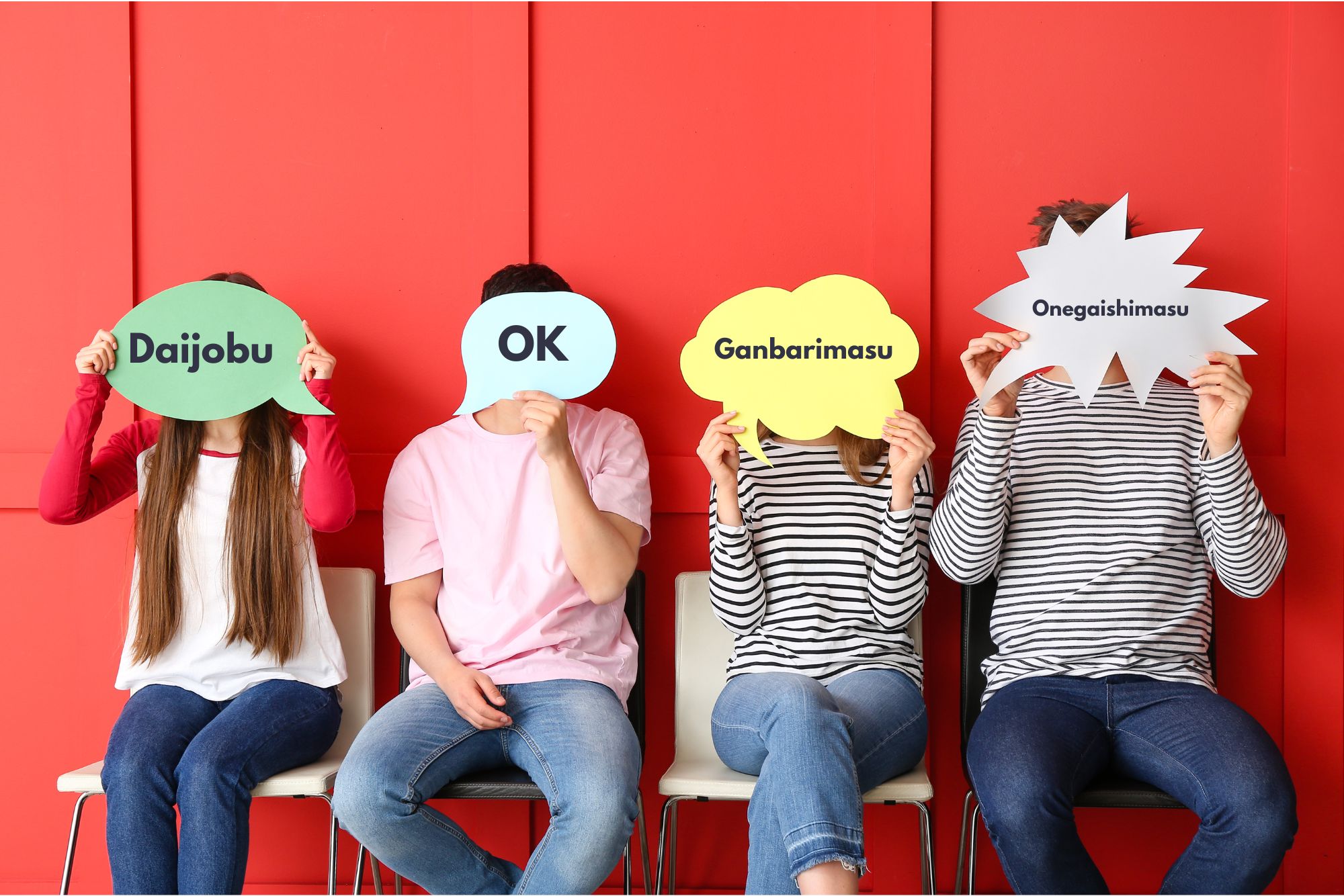Global Career Guide


- Jobs in Japan @ Daijob.com
- Global Career Guide
- Skill Up
- Mastering Effective Communication in Japan
Mastering Effective Communication in Japan


Communication is the cornerstone of successful interactions, especially in a culturally diverse country like Japan. Understanding the nuances of Japanese communication styles is crucial for building strong relationships, fostering business connections, and navigating day-to-day interactions. In this comprehensive guide, we will delve into the art of effective communication in Japan, exploring language tips, cultural sensitivities, and practical strategies to help you communicate with confidence and clarity in various settings.
Understanding Japanese Communication Styles
Japanese communication style is often described as indirect and high-context. This means that meaning is often conveyed through implicit cues, body language, and shared cultural knowledge, rather than explicit statements.
■ Direct vs. Indirect Communication
In Japan, communication often leans towards indirectness. Messages are subtly conveyed through gestures, tone, and context. Understanding the subtleties of indirect communication is essential for grasping the true meaning behind words.
■ High-Context Communication
Japanese communication is high-context, meaning that much of the message is implied rather than explicitly stated. Paying attention to non-verbal cues and reading between the lines is key to deciphering the full meaning of conversations.
■ Non-verbal communication Cues
Non-verbal cues such as facial expressions, body language, and silence play a significant role in Japanese communication. Being attuned to these cues can help you better understand the emotions and intentions of your conversation partners.

● Bowing: A fundamental form of greeting and respect. The depth and duration of the bow vary depending on the social context.
● Eye Contact: While eye contact is important, prolonged eye contact can be perceived as aggressive.
● Silence: Silence is often used to convey thoughtfulness and respect. Avoid feeling pressured to fill every silence with conversation.
● Body Language: Gestures and body language can convey subtle messages. Be mindful of your body language and avoid overly expressive gestures.
Language Tips for Effective Communication
The Japanese language is rich in honorific and politeness levels, reflecting the hierarchical nature of Japanese society. Understanding when and how to use these honorifics is crucial for showing respect and etiquette in communication.
■ Politeness Levels
The Japanese language has different levels of politeness, known as Keigo. It’s essential to use the appropriate level of politeness in different situations.
■ Common Phrases
Mastering basic greetings and conversational phrases in Japanese can go a long way in establishing rapport and building connections. Learning simple phrases like “Konnichiwa” (hello) and “Arigatou gozaimasu” (thank you) can help break the ice in conversations.
■ Business Etiquette
Familiarize yourself with business etiquette, such as the proper way to exchange business cards (meishi-kōkan).
Building Relationships:
■ Importance of Relationships in Japanese Culture:
Relationship-building is fundamental in Japanese culture, where trust and harmony are highly valued. Taking the time to nurture relationships through social interactions and networking events is key to establishing long-lasting connections.
■ Networking Tips:
Engaging in networking activities such as business dinners and industry events can provide opportunities to connect with professionals and expand your circle of contacts. Demonstrating genuine interest and respect towards others is crucial for successful networking in Japan.

■ Building Trust and Rapport:
Creating a sense of trust and rapport with your Japanese counterparts requires patience, consistency, and a genuine interest in their culture and values. Building a strong foundation of trust is essential for effective communication and collaboration.
Navigating Business Communication
■ Business Meeting Etiquette
In Japanese business culture, meetings are often formal and structured, with a focus on consensus-building and harmony. Observing proper meeting etiquette, such as arriving on time, preparing thorough agendas, and showing respect to senior colleagues, is essential for successful business interactions.
■ Email Communication Norms
Email communication in Japan follows formal conventions, with a preference for polite language and concise messages. Understanding the nuances of email etiquette, such as using appropriate greetings and expressions of gratitude, can help you convey professionalism and respect in written communication.
■ Negotiation Strategies
In negotiations, maintaining a respectful and patient demeanor is crucial in Japanese business culture. Emphasizing mutual benefits, listening attentively to the other party’s concerns, and seeking win-win solutions are effective negotiation strategies in Japan.
📰 Master the art of navigating cultural nuances and boost your career prospects in Japan with this article: Mastering Business Japanese for Success
Overcoming Language Barriers
■ Language Tools and Resources
Utilizing language learning tools, such as language apps, online courses, and language exchange programs, can enhance your language skills and confidence in Japanese communication. Consistent practice and exposure to the language can help bridge language barriers effectively.
Here are some tools at your fingertips:
● Duolingo app: Duolingo is a fun, free app for learning languages through quick, bite-sized lessons. Practice speaking, reading, listening, and writing to build your vocabulary and grammar skills.
● Bunpo app: Bunpo is a fast and easy way to learn Japanese. This Japanese learning app provides grammar explanations and lessons for learners of any level, from JLPT N5 to JLPT N4, JLPT N3, JLPT N2, and JLPT N1.
■ Working with Interpreters
When faced with language barriers, working with professional interpreters can facilitate smooth communication and ensure clarity in conversations. Communicating your needs clearly to interpreters and maintaining open communication can lead to successful interactions.
■ Learning Basic Japanese Phrases
Acquiring a basic understanding of Japanese phrases related to greetings, introductions, and common expressions can significantly improve your ability to communicate in various situations. Learning simple phrases can show respect and effort toward effective communication.
Cultural Sensitivity in Communication
■ Respecting Hierarchy and Seniority
Respect for hierarchy and seniority is deeply ingrained in Japanese culture, influencing communication patterns and interactions. Showing deference and respect towards senior colleagues and authority figures is essential for maintaining harmony and order in communication.
■ Understanding Silence in Conversations
Silence is often used as a form of communication in Japan, indicating reflection, agreement, or disagreement. Being comfortable with moments of silence and understanding the nuances of silence in conversations can help you interpret messages accurately.
■ Gift-giving and Its Role in Communication

Gift-giving is a common practice in Japan, symbolizing gratitude, respect, and goodwill. Understanding the etiquette and cultural significance of gift-giving can enhance your relationships and communication with Japanese colleagues and partners.
Challenges and Solutions
■ Common Communication Challenges Faced by Foreigners in Japan
Foreigners in Japan may encounter challenges related to language barriers, cultural differences, and communication styles. Recognizing these challenges and seeking proactive solutions is essential for effective communication and integration in the Japanese context.
■ Effective Strategies to Overcome Communication Barriers
Adapting to cultural norms, actively listening, seeking clarification when needed, and demonstrating respect for Japanese customs are effective strategies for overcoming communication barriers. Embracing cultural diversity and openness to learning can foster positive and productive communication experiences.
Take Away
Mastering effective communication in Japan goes beyond language proficiency; it requires a deep understanding of cultural nuances, interpersonal dynamics, and business etiquette. By honing your communication skills, building relationships based on trust and respect, and adapting to the cultural norms of Japan, you can navigate the complexities of cross-cultural communication with confidence and success. Embrace the art of effective communication in Japan to unlock new opportunities for personal and professional growth.
Discover Your Next Role in Japan. Access more than 10,000 jobs for free!


